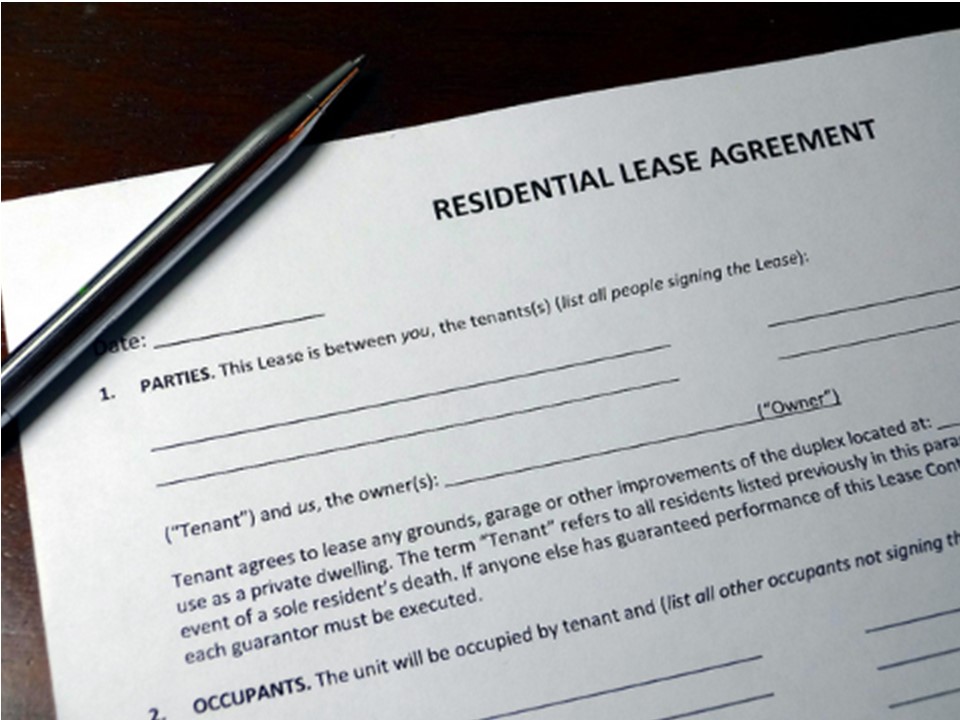Two of the key focuses of my blog are Financial Literacy/Money and Business/Entrepreneurship. Real Estate Investing has long been a key component in the wealth-building strategies of many people. In some instances, it’s the primary component. While it can be very lucrative for investors, there are several key aspects to consider when going in. The following contributed post is thus entitled, Real Estate: Investment Issues That Are Negotiable.
* * *

Real estate investors want a project to go as smoothly as possible, which is why there are red flags. As soon as you see them, it’s a sign to move onto the next listing and leave that one behind. For most people, they seem as if they are too dangerous to ignore and will put the investment at risk.
In truth, they aren’t as problematic as investors like to imagine. Yes, they are by no means perfect, yet the majority of the issues have solutions which are surprisingly basic and effective. Not only that; they are affordable too. Although it’s tough to go against years of conditioning, it may help you find a property which is the Holy Grail.
The best way to decide is to check out the advice underneath. If you agree with it, then there is no reason not to add it your strategy. If it appears too risky, you don’t have to adopt the tactics either. Here are the things to keep in mind regarding investment issues.
A Lack of Experience
Every investment story has to start somewhere. But a lack of experience can very easily lead to expensive mistakes, as you might not yet understand how to identify a good investment. But while you can’t gain personal experience without getting stuck in, you can benefit from the experience of others.
Always do your research, both in the market and in other, more experienced and renowned investors like Gavril Yushvaev. This way, you can understand why they make some of the decisions they do and hopefully make some money yourself. Even better, you can even hire more experienced investment professionals to help you make the right decisions for your market and needs.
Failing To Screen Tenants
Picture the scene. You’ve pumped a lot of money into a rental and now you’re on the lookout for tenants. However, because there wasn’t much time to waste, you didn’t do a thorough check. Now, you’re worried about continuing with the agreement in case the renters don’t pay up and leave you out of pocket. It’s one of the main fears with rental properties around the world.
Still, it isn’t as destructive as it sounds. Why? It’s because landlords can make people sign guarantor deals if they aren’t sure they’ll keep up with the payments. In essence, this means a tenant has to find a person to secure the deal, a lot like an insurer. Then, should they get into financial trouble, the guarantor(s) have to step in and pay the money.
In short, it’s an excellent contingency plan for landlords. Rather than chasing tenants with no money, you can legally go after the sponsor. When two people are liable for the payment, there’s a better chance of breaking even. Remember: nothing is stopping you from requiring multiple backers for a single tenant. That way, the odds shift in your favor by a large margin.

Not Saving Enough Money
There isn’t enough money in the budget to pay for the investment. This is a typical problem which investors face on a regular basis, and experience levels don’t impact it. Whether people are amateurs or professionals, there will always be unforeseen expenses that pop up out of nowhere. The difference isn’t in spotting them beforehand; it’s in having a backup.
Whereas novices panic, experts understand they need a cash injection as quickly as possible. So, they go to a bank and secure a loan. The money will cover the outgoings and stop the debts from mounting up, and it won’t be restricting either. As long as the investment goes well, the profit from the project will pay off the balance. Even if it doesn’t, there are ways to stop the extortionate interest rates from kicking in.
Take a credit card as an example. You can take out a 0% loan and swap it every couple of months or years. Then, all you have to pay is the minimum balance for as long as necessary. When there is enough money in the pot, then it’s possible to clear it permanently. Creditcards.com has more tricks and tips if you’re interested.

Forgetting The Home Inspection
Do it at your peril, the specialists say. There will be a major problem, such as subsidence, they warn. And, it will ruin the entire investment, they prophesize. In truth, even the huge issues are negotiable with the right tactics. It’s about not panicking and finding the perfect partner to dig you out of a hole.
Take a subsiding property as an example. You’ve purchased one without knowing and need an effective and affordable fix. HelitechCCD.com has the answer thanks to its foundation services. There is everything from earth shoring to ground improvement which will transform the foundations of the area. With their help, there is no reason to worry about the land or the structure of the building.
The same goes for mold. Experts like to make out it’s a death sentence, yet it’s easy to clear with good ventilation and a tin of paint. Take the moisture out of the air and the green stuff will struggle to grow. Use the paint to give the room its va va vroom back.
Hiring Cowboys Contractors
Buying a property and not having to renovate any area of the building is a pipedream. Regardless of whether it’s okay to move into, the odds are high that you’ll want to make changes. To do that, a contractor is essential as they have skill and experience and you don’t. So, they can fill in the gaps, literally and metaphorically.
Hiring cowboys is the greatest fear as they can ruin the investment. Thankfully, it’s not tricky to spot them from a mile away. All you need to do is ask them a few questions and analyze their answers. For example, get them to provide details of previous customers. Any company that is standoffish clearly has a reason to keep the information close to their chests.
Of course, a simple Google search is the only research tool you need nowadays. If there are complaints, they will be online for everyone to see.
Falling Foul Of The Economy
A 2008-style recession can happen at any moment and leave you high and dry. For people without vast amounts of wealth, this is a real danger as it will wipe away your funds. And, properties are tough to offload in a downward trending market.
The good news is there are multiple ways to invest, and you can do it without owning a home. REITs are usually compared to mutual funds and have high dividends which make them perfect for investors.
Plus, they can be varied so they will diversify a portfolio too.
There are always solutions to problems. It’s up to you to find them.














